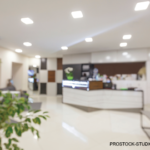That less-than-perfect cash flow remains one of the major issues during this time of transition. If, as in my circumstance, there is a break in paychecks between fellowship and new job, that contingency needs to be addressed well in advance of graduation. This is particularly true for the majority of graduates with school loans. In addition, we must pay quite a high price for the privilege of sitting for those board exams for which we will study so hard. These post-graduation costs and expenses greatly influence where many of us wind up working. While some positions, perhaps in academia, offer tremendous intellectual and social appeal, they often are surpassed in compensation by private sector jobs.
The Rewards
In sum, the months of transition following the end of fellowship often are both economically and emotionally costly. But the vast majority of us successfully will navigate through them, refocus and move on to rewarding careers. After many weeks of turmoil in my situation, all is (almost) back on track. I am (almost) settled in the house, the rent is paid, the carpenter ants have been relegated to unpleasant memory, and I soon will have completed the first few days of my new job.
For now, except for the relentless and untimely toothache I developed last week in my lower jaw, everything seems to have worked out well. But to reflect and prove that to err is human—and keeping in mind all of the glorious and responsible things that I accomplished and comment on in this article—I opted out of my interim dental insurance about a month ago.

As of Oct. 1, Katarzyna Gilek-Seibert, MD, is a staff physician in the Department of Rheumatology at Roger Williams Medical Center, Providence, Rhode Island.
